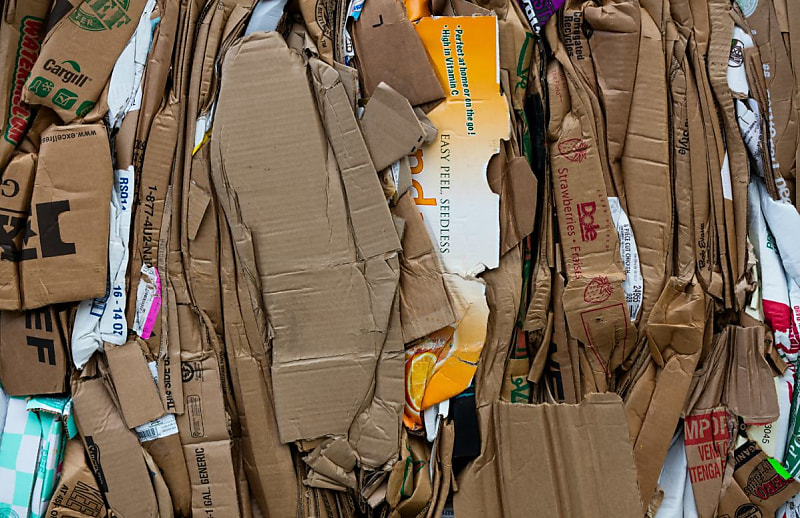The government says a levy on waste exporters has been a long time coming but exporters in the industry warn it will hurt local government and businesses and be passed onto consumers.
The government’s levy, dubbed a “recycling tax” by its opponents, would involve a $4 fee on every tonne of recyclables exported overseas, coming into effect on July 1 to fund the regulation of processed waste materials.
Environment Minister Tanya Plibersek said the changes had been “coming for a long time”.
“We shouldn’t be exporting our rubbish overseas to be dealt with. Wherever we can possibly do it here in Australia, we should do it here,” she said during an appearance on Sky News on Monday.
“Since coming to government, we have been building better recycling infrastructure … We have increased recycling capacity in Australia by 1.3 million tonnes.”
In 2020, federal and state governments agreed to ban the export of waste plastic, paper, glass and tyres while building domestic capacity to generate “high-value recycled commodities”.
The Recycling and Waste Reduction Act was passed in the same year to implement the commitment and provide a framework for recycling and waste reduction objectives.
According to government consultation papers, the costs of the government’s increased regulatory activity would be funded through a levy on export licence holders of $4 per tonne, to be paid upon export of each consignment.
The levy amount was calculated based on “leviable costs” of administering a licensing and declaration scheme to regulate waste exports at $13.4 million from 2023–24 to 2026–27, divided by forecast export volumes of 3.36 million tonnes over the same period.
In a letter to Assistant Treasurer Stephen Jones last month, the National Waste and Recycling Industry Council (NWRIC) said the levy would be “bad for the environment”, slugging the industry with higher costs and leading to more landfilling and higher greenhouse gas emissions.
“Council submits that the proposed cost recovery which we maintain is a government-imposed tax on the recycling industry in Australia will impact every Australian consumer adding an additional cost impost on already fragile budgets,” CEO Rick Ralph said.
“Any tax imposed by the government will be directly transferred by our industry to all local government and other contracts along with the additional industry charges that will be added to this government fee to recover our own business administration costs.”
Mr Ralph told The Australian on Monday that the levy, if implemented, would be a “world first” and hike living costs for households in a “breach of trust to the Australian community”.
The NWRIC’s letter also said the levy would coincide with new regulations on exporting recycled paper and cardboard, also set to come into effect on July 1, in a “significant blow” to the industry.
The regulations would only allow the industry to export paper and cardboard processed or sorted to specific requirements.
But NWRIC said, “export regulation of paper and cardboard delivers no demonstrated social, economic or economic benefits to the people of Australia”.
“It is not appropriate to proceed with this measure,” Mr Ralph said.

 Login
Login








You are not authorised to post comments.
Comments will undergo moderation before they get published.